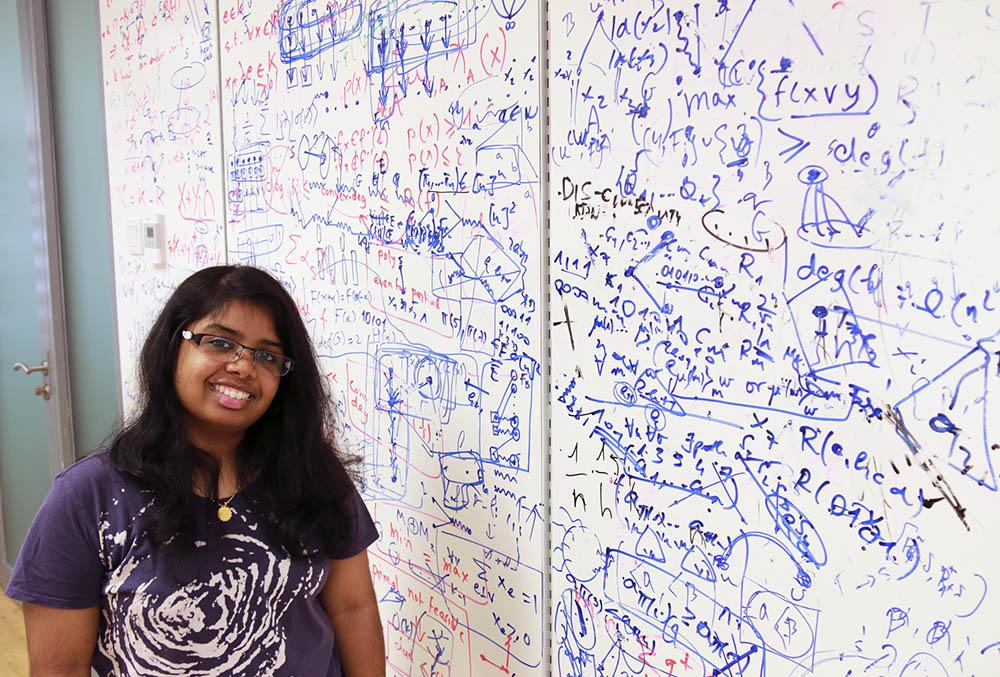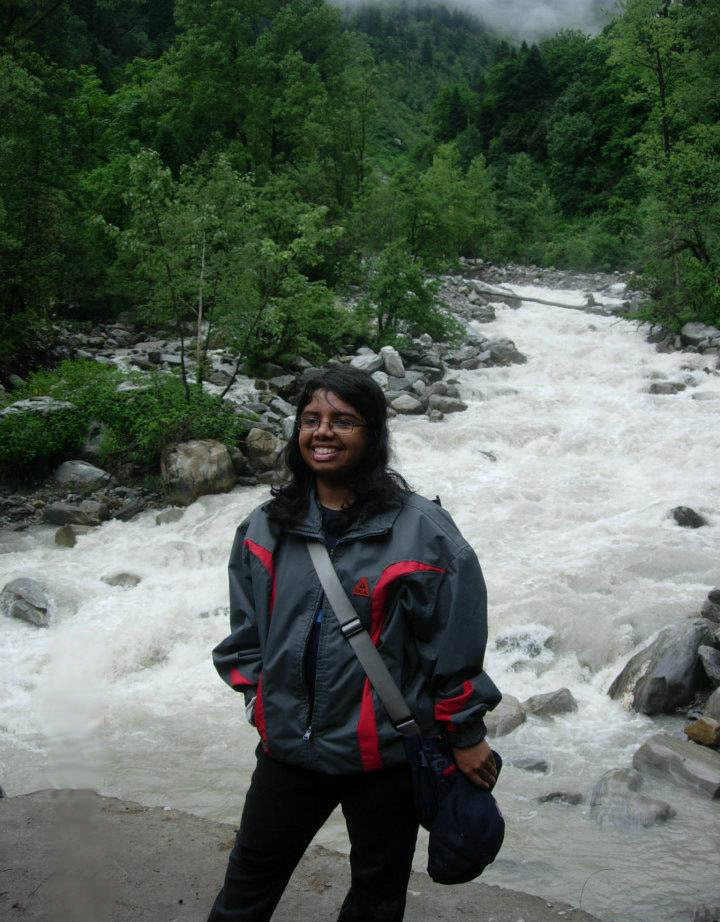Highlights
Meet a CQTian: Aarthi Sundaram

Aarthi Sundaram is a PhD student in computer science. "Probably whenever we do get to see quantum computers, the groundwork that we are laying now will make it easier to make advances. It could be like an avalanche," she says.
Who are you?
I'm Aarthi Sundaram. I am from Bangalore, the Silicon Valley of India, and I am 24. I'm in the second year of my PhD.
What is your research about?
I'm working mostly in the area of quantum algorithms, to understand their query complexity.
Quantum algorithms, these are like programs for quantum computers?
Well, yes, but it's not like you take a programming language and write something down. It's on a more abstract level. We are looking to describe a mathematical set of steps to solve a problem.
One of the ways we deal with quantum algorithms is to imagine implementing them using an 'oracle' that performs a certain function on an input. For example, a squaring oracle can take a number x as input and output the value x2. The query complexity of a problem is how many times we have to use the oracle in an algorithm that solves the problem. We don't concern ourselves with how the squaring of a number is done by the box. This is known as a black box model.
How did you get interested in this area?
During my undergrad degree, we had the choice to take elective subjects. One professor was offering a course in quantum information and computing. I had heard about Shor's quantum algorithm that would break RSA encryption, and that was enough for me to want to take the course.
Where did you do your undergrad?
I was at the Birla Institute of Technology and Sciences, in their campus in Goa. I did a dual degree with a Bachelor's in computer science and a Masters in math. The quantum information course brought a little physics in. It applied a lot of things I was studying and learning, connecting them up in a very nice way.
How did you end up at CQT?
I was thinking a PhD was the way to go, and I was looking at a lot of places in quantum computing. CQT popped up on my radar, and it's close to home. When I visited, I actually really liked the atmosphere here and it seemed like it would be a nice place to work. So far, I'm happy I'm not wrong.
Did you set out to do research, or did you do computer science as a step into industry?
I don't know why, but I have thought doing a PhD would be pretty cool since I was quite young.
With theoretical quantum computing, you've picked an area some people would consider esoteric.
It's a niche like nothing else. This is something I was weighing when I was taking up this area: it could go nowhere, or it could go everywhere. I'm really hoping it all works out. Probably whenever we do get to see quantum computers, the groundwork that we are laying now will make it easier to make advances. It could be like an avalanche. I guess that for classical computing a lot of things were done in parallel: the computers were being built as the architecture was improving. Here it seems that on the theoretical side we are getting ahead. In the worst case, if no one can build a quantum computer, at least we still have all these new ideas about these problems.
What problems are you working on?
There is this pretty new model of query complexity that we are working on. It's called the trial and error model. We assume that we are trying to solve a problem where input information is limited or lacking. We propose some 'trial' solutions and the oracle informs us if the input is satisfied, but it doesn't stop at saying no. It probably gives me just a little more information, like it may say a particular parameter of the trial or property of the input is not satisfied. Then you can propose the next trial in a smart way. We're asking, how many steps does it take to reach the correct solution?
Going back to the example of squaring a number, in this case we would know we want to find x2 (hidden by the oracle) but we don't know what x is. We propose trials for what x is and want to zero in on the correct x.
That's looking at it from the theoretical side. A lot of times this is the kind of situation you're facing with real problems. If you have a compound and you have no idea what it is, all you can do is guess that it has this property, try it and see what answers you get.
The interesting thing is that even for formulas we consider very easy, if you hide the input, they can get extremely hard to solve. If you have a quantum setting, if you can harness the power of entanglement or make trials in superpositions, will they become easier again?

Aarthi in the great outdoors.
Got any results yet?
We have some interesting characterizations in the classical case which will be published in the proceedings of the ICALP Conference this July. In the quantum setting, we think that one or two problems may stay easy. We are still trying to make sure the result is rigid and proper. If that's the case, it will give us a strong difference between what happens in the quantum setting and the classical setting.
Are you enjoying your work?
It's very enjoyable. For one thing, it's always fresh. There's a lot to learn. Experimentalists tinker around with things, take their experiments apart and put them together again. It's not so different as a theorist. When you talk about a problem, you may need to dig in and take it apart. You see little things, and sometimes you find connections you never expected. On the other hand, it is tough hitting more dead ends than open doors. But it's usually a one-door-closes-another-door-opens kind of thing.
What else do you like to do in life?
I occasionally swim, and a few of us from the group play squash whenever all of our schedules match up. In India I enjoyed doing some hikes in the Himalayas, related to the pilgrimages people used to take. My current pet project is to peer through the lens of my camera hoping to capture some nice moments and landscapes.






